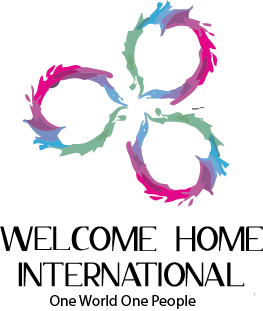SLSCafé
The Sustainable Life Skills Cafe Project emerged as a response to the pressing need to empower disadvantaged adult groups and promote social inclusion through the acquisition of sustainable life skills. Within the European Union, vulnerable populations such as migrants, marginalized groups, and low/semi-skilled adults faced significant challenges due to the lack of these essential skills and mindsets. This not only hindered their personal development but also limited their opportunities for social integration and economic participation.
The concept of sustainable life skills encompassed the internal capacities and behaviors that enable individuals to build necessary competencies for human development and adopt positive behaviors to effectively navigate challenges. These skills had a profound impact on various aspects of life, including the social environment and business settings. However, disadvantaged groups often lacked access to sustainable and soft skills training, hindering their ability to fully participate in society and impeding innovation.
Recognizing the labor market integration challenges faced by these vulnerable groups and the growing demand from employers for soft skills, the Sustainable Cafe Project aimed to address this gap and promote social inclusion and integration. The project specifically targeted low-qualified, marginalized, socially excluded adults, and migrants, providing them with high-quality learning opportunities in an interactive and inclusive learning environment.
The project team noticed that existing adult learning activities focused primarily on technical aspects, neglecting the integration of skills with real-life and work challenges. Building on their extensive experience in adult education, social and economic inclusion, and entrepreneurship, the project team identified a significant demand for revitalizing the context and methodology of non-formal learning for adults facing multiple barriers.
The concrete objectives of the Sustainable Cafe Project were multifaceted. Firstly, the project aimed to develop a sustainable life skills mindset among low-qualified adults, empowering them with relevant knowledge and attitudes necessary for future employment, entrepreneurship, and active participation in the workforce. Additionally, the project sought to professionalize adult education organizations, trainers, and support structures, enhancing their services and increasing their impact.
By actively supporting the potential active workforce in disadvantaged groups, the project aimed to create a substantial impact on the regional economy. Considering the interconnected value chains across the EU, this impact would extend to the national and EU levels. The project partners themselves would also benefit, acquiring new strategies, tools, and methods to improve the effectiveness of their services.
To achieve these objectives, the Sustainable Cafe Project outlined specific actions. Firstly, they aimed to develop a comprehensive toolbox presenting state-of-the-art methods for cultivating a sustainable life skills mindset. This toolbox would be designed in a supportive, simple, and easily understandable manner. Secondly, the project planned to establish Sustainable Cafes, which would serve as target group-specific, inspiring, and accessible learning environments. A blueprint handbook would be created to enable other organizations beyond the participating partner regions to implement these methodologies.
Furthermore, the project intended to develop an interactive app that would serve as a content dissemination platform, facilitating the exchange of resources and providing an interactive calendar and location tool. This app would ensure that all produced resources were widely accessible and freely available to the target audience.
Through the Sustainable Cafe Project, the aim was to equip disadvantaged adult groups with the necessary skills, mindsets, and support systems to thrive in both personal and professional spheres. By addressing the educational, social, and economic barriers faced by these individuals, the project aimed to promote social inclusion, empower individuals, and contribute to the overall well-being and prosperity of the European Union.
Project number: 2021-1-DE02-KA220-ADU-000029423
Website: https://slscafe.eu/
